第63章 CHAPTER XII MATHEMATICAL MEMORIES: NEWTON'S BI(4)
In those far off days it was the rule to make a little serious literary study take precedence of science. You were expected to be familiar with the great minds of antiquity, to converse with Horace and Virgil, Theocritus and Plato, before touching the poisons of chemistry or the levers of mechanics. The niceties of thought could only be the gainers by these preparations. Life's exigencies, ever harsher as progress afflicts us with its increasing needs, have changed all that. A fig for correct language! Business before all!
This modern hurry would have suited my impatience. I confess that I fumed against the regulation which forced Latin and Greek upon me before allowing me to open up relations with the sine and cosine.
Today, wiser, ripened by age and experience, I am of a different opinion. I very much regret that my modest literary studies were not more carefully conducted and further prolonged. To fill up this enormous blank a little, I respectfully returned, somewhat late in life, to those good old books which are usually sold second-hand with their leaves hardly cut. Venerable pages, annotated in pencil during the long evenings of my youth, I have found you again and you are more than ever my friends. You have taught me that an obligation rests upon whoever wields the pen: he must have something to say that is capable of interesting us. When the subject comes within the scope of natural science, the interest is nearly always assured; the difficulty, the great difficulty, is to prune it of its thorns and to present it under a prepossessing aspect. Truth, they say, rises naked from a well. Agreed; but admit that she is all the better for being decently clothed. She craves, if not the gaudy furbelows borrowed from rhetoric's wardrobe, at least a vine leaf. The geometers alone have the right to refuse her that modest garment; in theorems, plainness suffices.
The others, especially the naturalist, are in duty bound to drape a gauze tunic more or less elegantly around her waist.
Suppose I say: 'Baptiste, give me my slippers.'
I am expressing myself in plain language, a little poor in variants. I know exactly what I am saying and my speech is understood.
Others--and they are numerous--contend that this rudimentary method is the best in all things. They talk science to their readers as they might talk slippers to Baptiste. Kaffir syntax does not shock them. Do not speak to them of the value of a well selected term, set down in its right place, still less of a lilting construction, sounding rather well. Childish nonsense they call all that; the fiddling of a short sighted mind!
Perhaps they are right: the Baptiste idiom is a great economizer of time and trouble. This advantage does not tempt me; it seems to me that an idea stands out better if expressed in lucid language, with sober imagery. A suitable phrase, placed in its correct position and saying without fuss the things we want to say, necessitates a choice, an often laborious choice. There are drab words, the commonplaces of colloquial speech; and there are, so to speak, colored words, which may be compared with the brushstrokes strewing patches of light over the gray background of a painting. How are we to find those picturesque words, those striking features which arrest the attention? How are we to group them into a language heedful of syntax and not displeasing to the ear?
I was taught nothing of this art. For that matter, is it ever taught in the schools? I greatly doubt it. If the fire that runs through our veins, if inspiration do not come to our aid, we shall flutter the pages of the thesaurus in vain: the word for which we seek will refuse to come. Then to what masters shall we have recourse to quicken and develop the humble germ that is latent within us? To books.
As a boy, I was always an ardent reader; but the niceties of a well-balanced style hardly interested me: I did not understand them. A good deal later, when close upon fifteen, I began vaguely to see that words have a physiognomy of their own. Some pleased me better than others by the distinctness of their meaning and the resonance of their rhythm; they produced a clearer image in my mind; after their fashion, they gave me a picture of the object described. Colored by its adjective and vivified by its verb, the name became a living reality: what it said I saw. And thus, gradually, was the magic of words revealed to me, when the chances of, my undirected reading placed a few easy standard pages in my way.